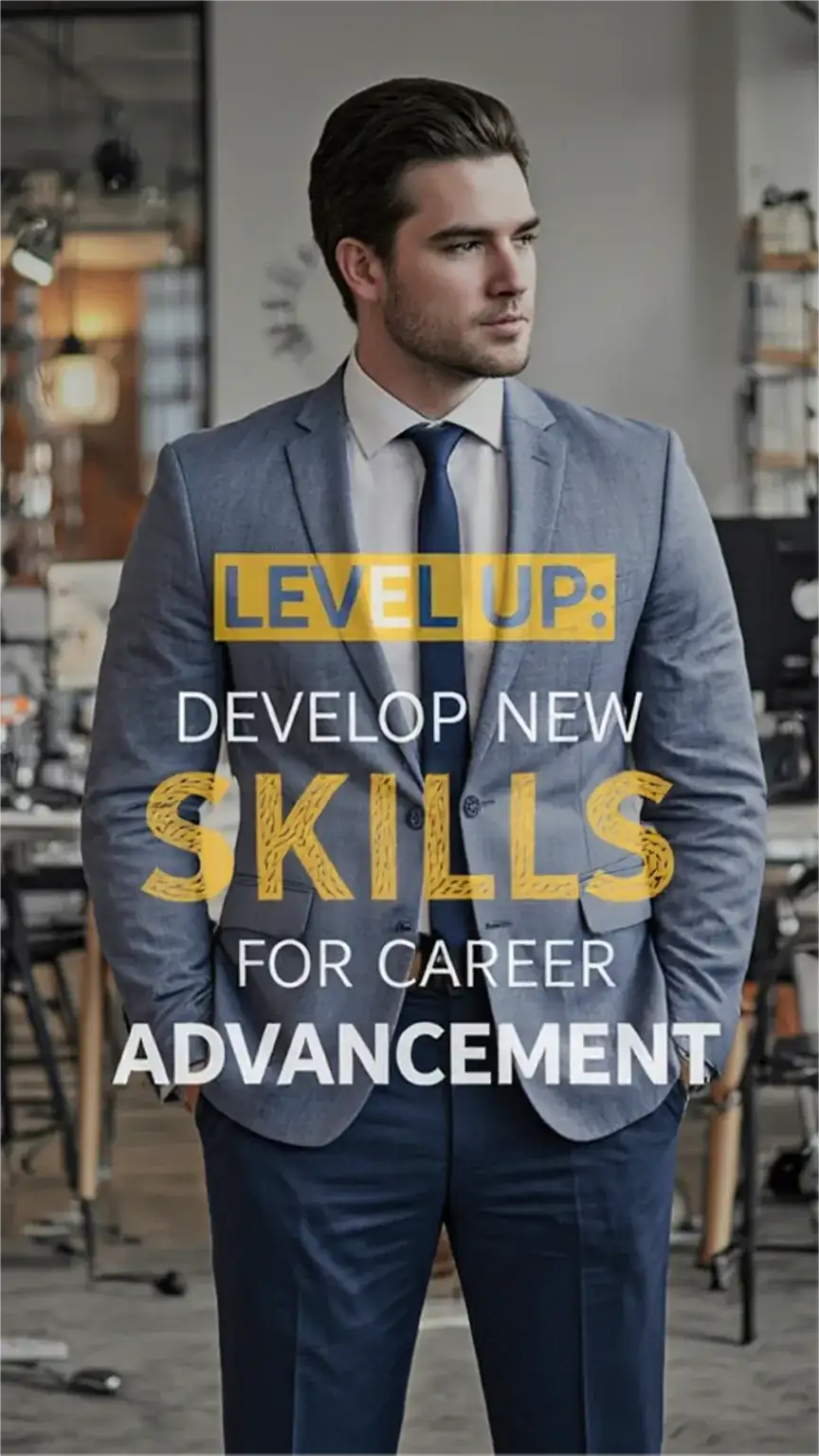As a guy who’s been around the block a few times, I’ve seen my fair share of rapidly changing job markets. It’s a daunting prospect, but with the right strategies, you can stay ahead of the curve and thrive. Here’s my take on how to do just that.
The career landscape is shifting faster than a chameleon on a disco floor. Automation, new technologies, and evolving industry demands mean that what worked yesterday might be obsolete tomorrow. For us men in our prime, say 30 to 65, this can feel like trying to navigate a maze blindfolded. You’ve built a career, developed expertise, and then suddenly, the goalposts move. It’s enough to make even the most confident fellow feel a little adrift.
But here’s the good news: staying relevant isn’t about chasing every shiny new trend. It’s about cultivating a mindset of continuous growth and strategic adaptation. Think of it less like a sprint and more like a well-paced marathon, where you conserve energy but maintain momentum. Your future self, the one who’s still crushing it in their career, will thank you for taking these steps.
Ladies, if you’re looking to offer some rock-solid career advice to the man in your life, bookmark this. He might be stuck in a rut, and a little nudge in the right direction can make all the difference.
The Core Challenge: Staying Ahead of the Curve
Let’s be honest, the fear of becoming irrelevant is real. You’ve invested years into your profession, honing your craft. The thought that your hard-earned skills might be devalued can be unsettling. It’s a common pain point for many men who are either mid-career or looking to pivot. Perhaps you’ve noticed job descriptions changing, or new buzzwords popping up that you’re not quite familiar with. This uncertainty can lead to a subtle erosion of confidence, and that’s the last thing you want when trying to advance.
Imagine walking into a room where your confidence precedes you, not just because of your attire, but because you know you’re equipped for whatever challenges lie ahead. That’s the goal. It requires more than just showing up; it demands proactive engagement with your professional development. We’re not talking about becoming a tech wizard overnight, but about smart, consistent efforts that keep you valuable and in demand. It’s about building a robust skillset and a flexible approach that can weather any economic storm.
Tip #1: Embrace Lifelong Learning
In today’s fast-paced job market, it’s essential to stay curious and keep learning new skills. Whether it’s taking online courses, attending workshops, or reading industry publications, make it a priority to stay informed and adapt to changing trends. This isn’t just about adding more lines to your resume; it’s about fundamentally expanding your capabilities.

Think of it like maintaining a classic car. You wouldn’t just let it sit in the garage; you’d keep up with the maintenance, perhaps even upgrade certain parts to improve performance. Your career is no different. Staying current means staying competitive. For example, if you’re in marketing, understanding AI-driven analytics is no longer optional; it’s a necessity. Similarly, a project manager might need to brush up on agile methodologies.
Recommended resource: Check out Coursera’s extensive catalog of online courses, available at Coursera. They offer a vast array of subjects, from business strategy to data science, taught by top university professors. Furthermore, platforms like LinkedIn Learning provide bite-sized courses perfect for busy schedules.
Practical Learning Strategies
Learning doesn’t always mean enrolling in a formal degree program. There are numerous accessible ways to upskill. Consider industry-specific conferences, webinars, or even podcasts that delve into your field. Subscribing to reputable trade journals or newsletters is also a smart move. For instance, a graphic designer might follow publications that highlight new software features or design trends.
Moreover, don’t underestimate the power of learning from your peers. Engaging in discussions within professional forums or joining industry meetups can provide invaluable insights. Take it from Dave, a 45-year-old accountant who landed his dream client after revamping his LinkedIn profile photo and sharing relevant industry articles. He actively sought out knowledge beyond his daily tasks.
Tip #2: Network and Build Relationships
Networking is key in any job market, but it’s especially crucial in a rapidly changing one. Attend industry events, join professional organizations, and connect with people on LinkedIn. These relationships can lead to valuable career opportunities and insights. It’s not just about collecting contacts; it’s about cultivating genuine connections.

When the job market shifts, your network often becomes your most reliable compass. Someone you met at a conference last year might be the one who tells you about a hidden opportunity or provides crucial intel on an emerging trend. Building these bridges takes time and effort, but the payoff is immense. Consider it an investment in your professional future.
Recommended resource: Download the LinkedIn app and start building your professional network today. Focus on sending personalized connection requests that explain why you want to connect. Furthermore, engage thoughtfully with content shared by your connections.
Cultivating Your Network
Networking doesn’t have to feel transactional or awkward. Start small by attending local industry meetups or professional association meetings. When you’re there, aim to have meaningful conversations, not just hand out business cards. Ask people about their work, their challenges, and what they’re excited about in the industry.
For example, if you’re attending a tech conference, strike up a conversation with someone who’s presenting a topic that interests you. Similarly, if you’re a woman looking to help your partner, encourage him to attend events and follow up with people he meets. A simple, “Hey, I enjoyed our chat about AI at the conference. Let’s stay in touch,” can go a long way. It’s about fostering a community of support and knowledge sharing.
Tip #3: Focus on Transferable Skills
When companies undergo significant changes, they often look for employees with transferable skills that can be applied to new roles. Identify your strengths and focus on developing skills that are in high demand, such as data analysis or digital marketing. These are the bedrock skills that remain valuable across various industries and job functions.

Think about your core competencies. Are you a strong communicator? An excellent problem-solver? A natural leader? These are all transferable skills. For instance, someone who excels at managing complex projects in manufacturing can likely apply those same organizational and leadership skills to managing projects in healthcare or software development. It’s about recognizing the underlying abilities that make you effective, regardless of the specific context.
Recommended resource: Check out Skillshare’s online courses on in-demand skills, available at Skillshare. They offer project-based learning that helps you build practical experience. Additionally, platforms like Udemy provide a vast library of courses covering almost any skill imaginable.
Identifying and Honing Your Strengths
Take some time to reflect on your career achievements. What were the common threads that led to your successes? Were you particularly good at analyzing data to inform decisions? Or perhaps you have a knack for mediating conflicts between team members? These are your transferable skills in action.
Pro Tip: When updating your resume or LinkedIn profile, don’t just list your job duties. Instead, highlight your accomplishments and the skills you used to achieve them. For example, instead of “Managed social media accounts,” try “Increased social media engagement by 30% through data-driven content strategy and community management.” This showcases your transferable skills effectively. Ladies, this is a great way to help the man in your life articulate his value.
Tip #4: Stay Adaptable and Open-Minded
The ability to adapt quickly and think outside the box is crucial in a rapidly changing job market. Be willing to take calculated risks and consider new opportunities, even if they’re outside your comfort zone. Adaptability is your superpower in today’s professional world. It’s about embracing change rather than resisting it.

Consider the story of a former colleague who was an expert in print advertising. When digital advertising emerged, he could have become resistant. Instead, he embraced the change, took courses on digital marketing, and successfully transitioned his career. His willingness to learn and adapt was the key to his continued relevance. This proactive approach is vital for maintaining career momentum.
Recommended resource: Read The Art of Thinking Clearly by Rolf Dobelli (Amazon affiliate link) for insights on how to cultivate a more adaptable mindset. The book offers practical advice on avoiding common cognitive biases that can hinder clear thinking and decision-making. Consequently, understanding these pitfalls can help you approach challenges with greater objectivity.
Embracing New Horizons
Being open-minded means being receptive to new ideas and approaches, even if they challenge your existing beliefs. It also means being willing to step outside your comfort zone. This might involve taking on a project that stretches your current skill set or exploring a different industry altogether. Remember, growth happens at the edge of your comfort zone.
For women reading this, you can encourage the men in your lives to be adventurous. Perhaps suggest a new hobby that develops a different skill, or discuss how they might leverage their existing talents in an adjacent field. A little encouragement can go a long way in fostering that adaptable spirit. It’s about seeing opportunities where others see obstacles.
Tip #5: Leverage Your Personal Brand
In today’s digital age, your personal brand is more important than ever. Establish a strong online presence, create compelling content, and engage with your audience to build a reputation that can open doors to new opportunities. Your personal brand is essentially how you present yourself to the world, both online and offline.

This includes your LinkedIn profile, your social media activity, and even how you conduct yourself in professional interactions. A well-defined personal brand can differentiate you from the competition and attract opportunities. Think about what you want to be known for professionally. Are you the go-to expert on a particular topic? The innovator who always has a fresh perspective?
Recommended resource: Download Canva’s graphic design app and start building your personal brand today. You can create professional-looking graphics for social media posts, presentations, and even your resume. Furthermore, consider creating a personal website or blog to showcase your expertise.

Crafting Your Online Presence
Your LinkedIn profile, for instance, should be more than just a digital resume. It’s a platform to showcase your expertise, share your insights, and connect with others. Regularly update it with your latest achievements and engage with relevant industry content. This consistent activity signals to recruiters and peers that you are active and knowledgeable.
Consider the impact of a professional headshot. A high-quality, approachable photo can significantly boost your credibility. For men, opting for a sharp, well-lit portrait that conveys confidence is key. Similarly, ensuring your social media profiles are professional and aligned with your career goals is crucial. Ladies, you can help the man in your life refine his online image, perhaps by helping him choose a great photo or curate his posts. Tag a friend who needs a style intervention!
Final Thoughts
Staying relevant in a rapidly changing job market requires a combination of skills, adaptability, and a willingness to learn. By embracing lifelong learning, building relationships, focusing on transferable skills, staying adaptable, and leveraging your personal brand, you’ll be well-equipped to thrive in any job market. It’s about cultivating a mindset of continuous improvement and embracing the opportunities that change presents.
Takeaway: Remember, the key to success is to stay curious, stay connected, and stay open to new opportunities. By proactively investing in your professional development and adapting to the evolving landscape, you’ll not only remain relevant but also position yourself for long-term career success. Share this guide with your buddies and stay ahead of the curve!
Ready to own your image and career trajectory? Start by identifying one new skill you want to learn this month and take the first step. Share your #StyleUpgrade and #CareerGrowth journey on Pinterest or your favorite socials!



